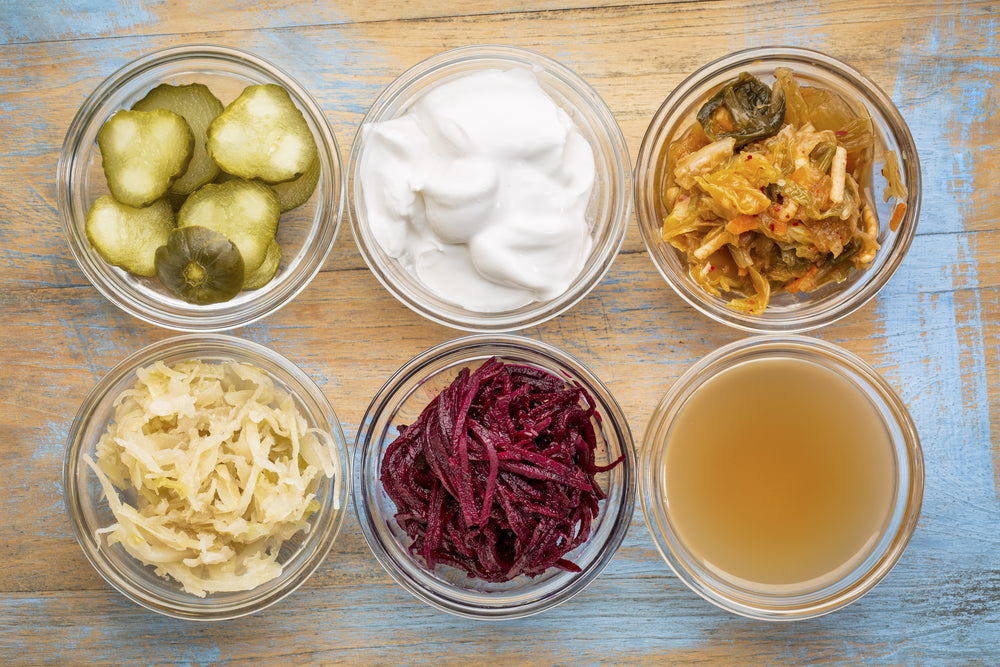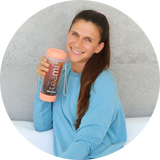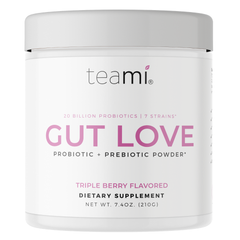The 10 Healthiest Foods With Probiotics

Probiotics are live microorganisms that can reap a wide range of benefits for your overall health when you consume them. Probiotics feature the good bacteria that your gut and the rest of your body needs to function and thrive optimally.
From improving your digestion to boosting cardiovascular health to reducing anxiety and depression — probiotics are a powerhouse of wellness.
While you can incorporate supplements into your health and wellness regimen to enjoy the fantastic benefits of probiotics, there are also plenty of fermented foods that contain probiotics.
Keep reading for a comprehensive list of the ten best foods with probiotics.
Kefir
Kefir is a fermented milk drink containing probiotics. It’s made by combining kefir grains with goat or cow’s milk. Kefir grains shouldn’t be confused with cereal grains. Instead, kefir grains are cultures of yeast and lactic acid bacteria that have an appearance similar to cauliflower.
Kefir is one of the best sources of probiotics because it features numerous primary strains of healthy yeast and bacteria, making it both versatile and potent. The probiotic source could help alleviate digestive issues, safeguard against infections, enhance your immune system, and boost bone health.
Yogurt is one of the first foods rich in probiotics that people think of. However, if you have a lactose issue or want to change things up, kefir is typically well-tolerated by individuals with lactose intolerance.

Tempeh
Tempeh is another one of the best sources of probiotics you may want to consider adding to your list of healthy foods for regular consumption. Featuring fermented soybeans, tempeh looks like a firm party with a nutty or earthy flavor. Some have compared the taste as similar to a mushroom.
Soybeans are generally rich in phytic acid, a compound that impedes mineral absorption. However, the fermentation process reduces the phytic acid levels, which can heighten the number of minerals your body could absorb when you eat tempeh.
The fermentation process also produces vitamin B12, a vitamin that soybeans don’t naturally contain. Tempeh is an excellent choice both for anyone interested in incorporating natural sources of probiotics into their diet.
Sauerkraut
While it gained prominence as a long-standing traditional food in many countries throughout Europe, sauerkraut is another one of the good sources of probiotics. Sauerkraut is simply cabbage that has been shredded finely and fermented with lactic acid bacteria.
You can store sauerkraut for months in an airtight container. Besides its probiotic benefits, sauerkraut also contains significant quantities of vitamins B, C, and K, along with plenty of fiber. It’s also rich in manganese and iron.
When selecting sauerkraut, it’s important to purchase unpasteurized sauerkraut as the pasteurization process kills active and live bacteria.
Kimchi
Another one of the top foods with probiotics is Kimchi, a spicy and fermented Korean specialty that often garnishes entrees or is served on the side. It features either cabbage or radish as the main ingredients. Kimchi is incredibly flavorful, seasoned with robust flavors such as ginger, garlic, scallions, and red chili pepper flakes. Kimchi is rich in lactic acid bacteria that is effective to boost digestive health. When made with cabbage, this type of fermented food also contains other essential nutrients, including iron, riboflavin, and vitamin K.
Miso
Miso is a versatile type of Japanese ingredient, usually made by fermenting soybeans with the koji fungus and salt. You can also make miso by combining soybeans with other ingredients such as rye, rice, and barley.
Miso paste is typically used in miso soup, a widely popular Japanese breakfast food. You can buy Miso in a variety of forms, including brown, red, yellow, and white. Miso not only packs a punch in terms of probiotics but is a quality source of fiber and protein. It also contains additional minerals, vitamins, and nutrients such as copper, manganese, and vitamin K.

Pickles
You may love pickles on your burger, but did you know that this fermented food can also be a rich source of probiotics? Pickles are just cucumbers that are pickled in a water and salt solution and fermented in their naturally occurring lactic acid bacteria.
The lactic acid is the reason for the sour taste we associate with pickles. Pickled cucumbers are not only low in calories and a quality source of Vitamin K but present another excellent probiotic option that could improve your digestion.
Bear in mind, that pickles fermented with vinegar don’t feature live probiotics. Also, pickles can be higher in sodium. Consider eating pickles as one of many food probiotics you incorporate into your diet.

Kombucha
A famous green or black tea drink, Kombucha is a tasty tea fermented with healthy yeast and good bacteria. It is regularly consumed in Asia but has become widely popular in other parts of the world in recent years.

Certain Types of Cheese
While it’s true that most cheese is fermented, this doesn’t mean that all types of cheese contain probiotics. It is vital to check for live and active cultures when reading food labels if you want to enjoy a healthy probiotic boost with your dairy products. Good bacteria remains after the aging process in certain types of cheese, including:
- Cheddar cheese
- Mozzarella
- Gouda
- Cottage cheese
Besides being one of the best foods with probiotics, cheese is also a good protein source and rich in specific vitamins such as phosphorus, selenium, vitamin B12, and calcium.
Natto
Like miso and tempeh, natto is another type of fermented soybean product. Featuring a strain of bacteria known as Bacillus subtilis, this food with probiotics is a Japanese dietary staple with a potent flavor and smell. Natto is also an excellent source of vitamin K2 and protein, both of which are essential for bone and heart health.
Yogurt
We bet you already knew about these foods that are probiotics, but you may not have known that yogurt is one of the best sources of friendly bacteria for your health. Yogurt is a milk product fermented primarily with bifidobacteria and lactic acid bacteria.
Yogurt can reap a range of benefits from boosting bone health to lowering high blood pressure to easing irritable bowel syndrome symptoms. You may still be able to enjoy the probiotic benefits of yogurt even if you have lactose intolerance because the bacteria turns a portion of the lactose into lactic acid.
When selecting yogurt, be sure to pick a product containing live or active cultures and avoid yogurt containing high quantities of added sugar.
Eat Foods Rich in Probiotics
At Teami, we’re all about fueling a healthy lifestyle with plenty of exercise and a diet focused on keeping your gut healthy and happy. From the gut-mind connection to how gut health influences your complexion, there are plenty of reasons to introduce natural probiotics into your diet.
Explore our lifestyle posts to read up on everything there is to know about having a healthy gut diet and discover our recipes to see how you can use probiotic-rich foods in your favorite meals and snacks.

Adi Arezzini
Teami Blends - Co-Founder + CEO
Certified Nutrition Health Coach
Say Hello to Our Gut Love Probiotic + Prebiotic Powder
Subscribe to our Newsletter
Subscribe to our newsletter and get 10% off your first purchase







 Instagram
Instagram



